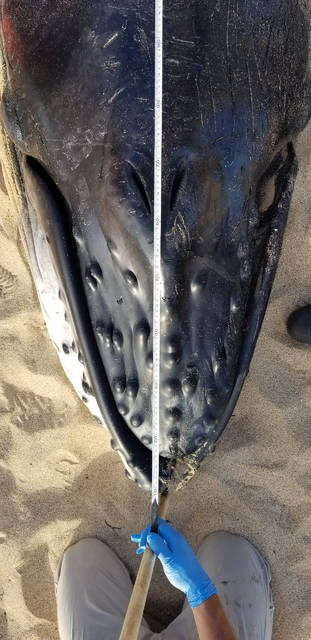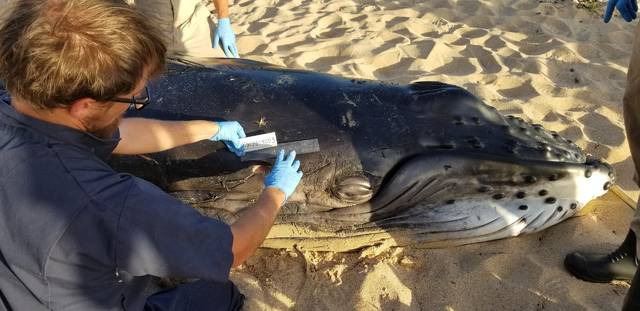KEKAHA — The humpback whale calf found dead on Kekaha Beach Monday didn’t die of starvation and it wasn’t killed by sharks, according to Researchers from the Hawaii Institute of Marine Biology’s Marine Mammal Stranding Lab.
KEKAHA — The humpback whale calf found dead on Kekaha Beach Monday didn’t die of starvation and it wasn’t killed by sharks, according to Researchers from the Hawaii Institute of Marine Biology’s Marine Mammal Stranding Lab.
But, they’re still investigating.
“We do not know at this time why that whale calf died,” said Kristi West, who heads up HIMB’s Marine Mammal Stranding Lab in an Oahu news conference Tuesday morning.
The team flew to Kauai Monday to do a necropsy on the calf after it was reported by a Kekaha resident and taken to the Pacific Missile Range Facility by Kauai Ocean Safety officials.
The necropsy revealed the whale was a 13.5-foot female that was one or two weeks old at the time of death and while it hadn’t nursed recently, evidence showed it had nursed at least once.
“No evidence it died of starvation,” West said.
Marks were found on the carcass that are consistent with boating vessels and sharks, but it’s unconfirmed that the cause of death is due to a collision with a boat.
The necropsy did rule out sharks as the cause of death for the whale calf, but scientists say sharks likely were predating on the calf after death.
The investigation is ongoing. Samples have been taken for further study into the cause of death of that specific whale, but also to help answer the question of why there have been fewer whale sightings in the Hawaiian Islands than in previous years.




